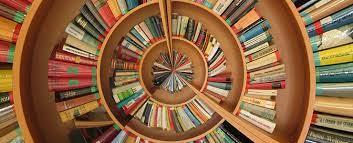English

Studying Performance
This course introduces students to the idea of performance and its pedagogic practices. The course equips students with critical skills to understand performance, aesthetics and virtuosity and will familiarize students with the performed practice and theories of theatre, dance and other related art forms and also borrow conceptually from the field to understand other social and ritualistic phenomena.
Studying Literature
The course introduces the objects, methods, debates and critical frames of literary studies.
Author, Authorship and Authority
Topics of study may seek to examine Canon formations, Award-regimes Socio-economic, cultural, political and legal conditions that produce notions of author/ship in different periods and places (e.g.: rise of the professional author copyright laws, the rise/fall of magazine culture, reading cultures) Minority writing/Minor literatures Literary controversies “Anonymous”, Pseudonyms, Heteronyms, Individual careers In this course we would read a variety of texts ranging from letters, speeches, award citations, prefaces, manifestoes, auto/biographies literary pieces that centre t
Literary Theory
The course will take a survey form, aiming to introduce students to the history of engagement with literary (and other artistic) forms. As a result, the course, while allowing for conversations across time, will take the route of thinking in linear time to examine developments of thought regarding literature. In doing so, the limits of such linear imagination would also be exposed. It will take the crystallisation of ‘Literature’ as an autonomous domain as the ground to examine how a canon was formed over time.
Possible modules listed below.
Advanced Course on Postcolonial Theory
This is an advanced course on Postcolonial Theory. In this course, we will examine some of the influential scholarship that constitutes the field of Postcolonial Studies. We will look at a few of the important debates that were waged, including a fierce one on the legitimacy of the term 302221postcolonial302222 itself, the critical vocabulary and methodological tools that developed, and analytical practices that this field engendered. Some of the topics that the course may wish to emphasize upon are as follows:
Shakespeare`s Plays and their Afterlives
Topics will include an overview of Shakespearean theatre, audience, classification of his plays, and the main corpus of significant Shakespearean criticism down the centuries. This course will close-read at least 3 or 4 Shakespearean plays and their more famous re-inventions after the sixteenth century. Genre could be one parameter of selecting the texts, taking a cue from the classifications of the Shakespearean canon. To take a few examples: Shakespeare`s Scottish play will be read in sufficient detail and re-considered in the light of its afterlives.
Introduction to Theatre and Performance Studies
1.The main objective of the course is to open up the field of ‘Theatre and Performance Studies’ to the students such that the various debates around it across continents become clear to them and it enables thinking about the discipline within our contemporary academic landscape.
Literary Studies
History of Literature, taking English as an example, may be taken up for study in order to understand how the history of English Literature is related to canon-formation. Standard texts on this subject, observe trajectories of tracing the evolution of British literary history. This course will interrogate the trajectory, in ways ranging from accommodating more women authors in the literary history, to re-imagining the conventional subdivision of the writers of each age as major and minor.
Introduction to Linguistics
Linguistics is the scientific study of human language. Some of the main features of the human language faculty make it unique in the biologicalworld and in the study of cognition. Language is universally found no matter how primitive a people or their society, it is easily and effortlessly acquired by children though not by adults trying to learn a second or third language, it is endlessly creative and productive and such production and comprehension appear automatic and effortless.
Trends in Twentieth Century Drama
This course offers a comparative perspective on important trends in modern india. Through highly participatory pedagogic methods, the students are encouraged to share their special interest in examining specific themes, techniques of theatre representation, acting and writing. Definitions : the origin and function of drama. The connection between drama, leterature, theatre, cinema and performing arts. Historical overview of various trends in the West : Naturalism in the plays of Chekhov, lbsen strindberg.
Pagination
- Previous page
- Page 4
- Next page